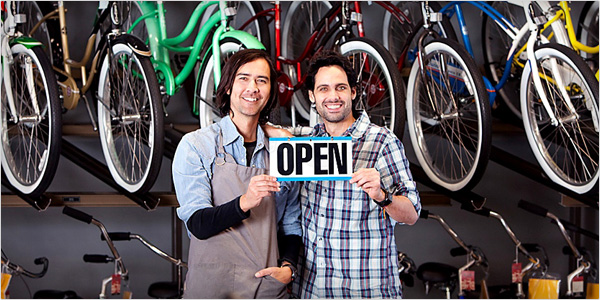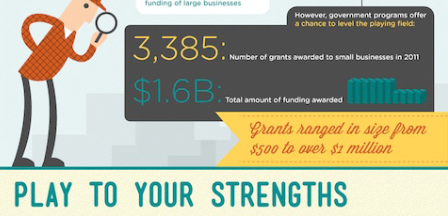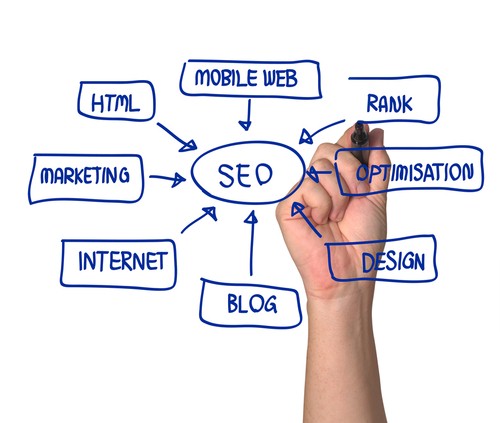If you’re like most entrepreneurs who are leading small businesses in today’s climate, you probably don’t have a lot of money in the budget for marketing. But you still have to generate exposure for your business somehow—otherwise, how will you get more paying customers to come through your doors?
What you need is a low-budget but effective way of building a brand. The answer? Sponsoring events in your community, which helps out organizations in your neighborhood or city and provides real benefits for your business.
“What you need is a low-budget but effective way of building a brand.”
Can You See Your Business as a Community Sponsor?
Get attention without spending a lot: increase your visibility in your community by sponsoring local organizations and events. Partner with a group like a Little League team or a community picnic. Get your name out there in a positive light without breaking the bank.
In fact, you might not have to spend cash at all. There are ways to attach your name to community events as a sponsor without investing money, says HootSuite Inbound Marketing Specialist Kristina Cisnero. In “11 Marketing Ideas For Small Businesses On A Budget,” Cisnero explains that you can either be a paying sponsor or an “in-kind” sponsor. The difference? Rather than donating money, an in-kind sponsor donates a product or service.
For example, if you sell sporting goods, you can offer up some of your overstock items as donations to a local kids’ team. If you have a great facility, you can let others use it for concerts and other local gatherings that people will enjoy. This way, you get your name out there and attract positive attention without having to spend any actual dough.
Whether you opt for monetary or in-kind sponsorships, you can effectively promote your brand by partnering with community figures that people already know and love.
“For small businesses on a tight budget, an in-kind sponsorship is just as good as monetary sponsorship,” Cisnero advises. “Being a sponsor for a nonprofit organization increases your reach and provides you the opportunity to get your product in the hands of potential new customers.”
What’s the Value of Sponsorship?
What do you get out of sponsoring groups and events, anyway? How will it benefit your business?
Looking at these questions from the event organizer’s prespective may clarify things. Through her company Fired Up Fundraising, Gail Perry coaches nonprofits worldwide on how to fundraise more effectively. She notes in “8 Tips for Getting High Dollar Sponsorships for Your Big Event” that every event and group organizer should provide sponsors a a unique value proposition—something original and irresistible. What sort of reciprocation will sway potential sponsors?
“What can you offer that nobody else can?” Perry asked. “I like to ask the sponsor what’s most important to them. And then I work hard to provide it.” Remember that organizations and events you consider sponsoring will work hard to get you on board, going out of their way to make your partnership a beneficial one for you.
Here are a few potential benefits of being a sponsor:
An On-Site Presence
Say you set up shop at an event you’re sponsoring, with your own booth and product displays. Having a physical presence for your business will show the community who you are, helping put a relatable human face on your brand.
Exposure for Your Logo and Signage
Sponsoring events will give you a chance to showcase your logo and other visual content on the event’s fliers, website, and at the event itself. This exposure can be invaluable for planting that seed in the consumer’s mind.
Media Mentions
If your business is the lead sponsor on a given community event, you’ll probably get a mention in every newspaper or radio update about it. If the local Labor Day parade is “Brought to you by [your business],” that positive (and frequently repeated) mention will reverberate with potential customers.
Category Exclusivity
You don’t just want to offer a product at an event—you want to be the only one offering it. If you can be the official, exclusive vendor for a local event, that will lend your brand an air of authority. Negotiate for exclusivity if at all possible.
Access to Customer Mailing Lists
Sponsoring an event means getting acquainted with the attendees. It might even mean tapping into mailing lists that are loaded with names, email addresses, and phone numbers for potential customers. Any time you have the chance to track down new leads, go for it.
A Chance to Display Your Content
Chances are, you’ve got plenty of informative content to offer, whether it’s hard copies of pamphlets, blog posts on your website, or a mix of the two. Sponsoring a local event gives you an opportunity to share your marketing materials and get extra exposure, which can greatly increase your small business’s visibility.
What You Can Do Right Now
Ready to make a difference in your community while gaining business? Here’s what to do today to begin sponsoring local events.
- Begin looking for good potential partnerships (both organizations and events) for your business—those that will either resonate with your ideal audience or tap into a related, but new demographic. Search your city’s Chamber of Commerce website or a try a matching service like Sponsor My Event.
- Remember that you don’t necessarily have to spend money to be a sponsor. Brainstorm what you can contribute to various causes, be it products, a service, or even a venue.
- Be prepared to negotiate for some benefits for your business. What do you need to make your sponsorship work for you: an on-site presence, exclusive vendor rights, lead generation?
- 5 Reasons Why Cloud Solutions are Essential for Small Business - February 4, 2024
- How to Migrate Your Business to the Cloud in 7 Steps - June 16, 2021
- How Beacon Technology is Revolutionizing Business and Marketing - March 18, 2021



